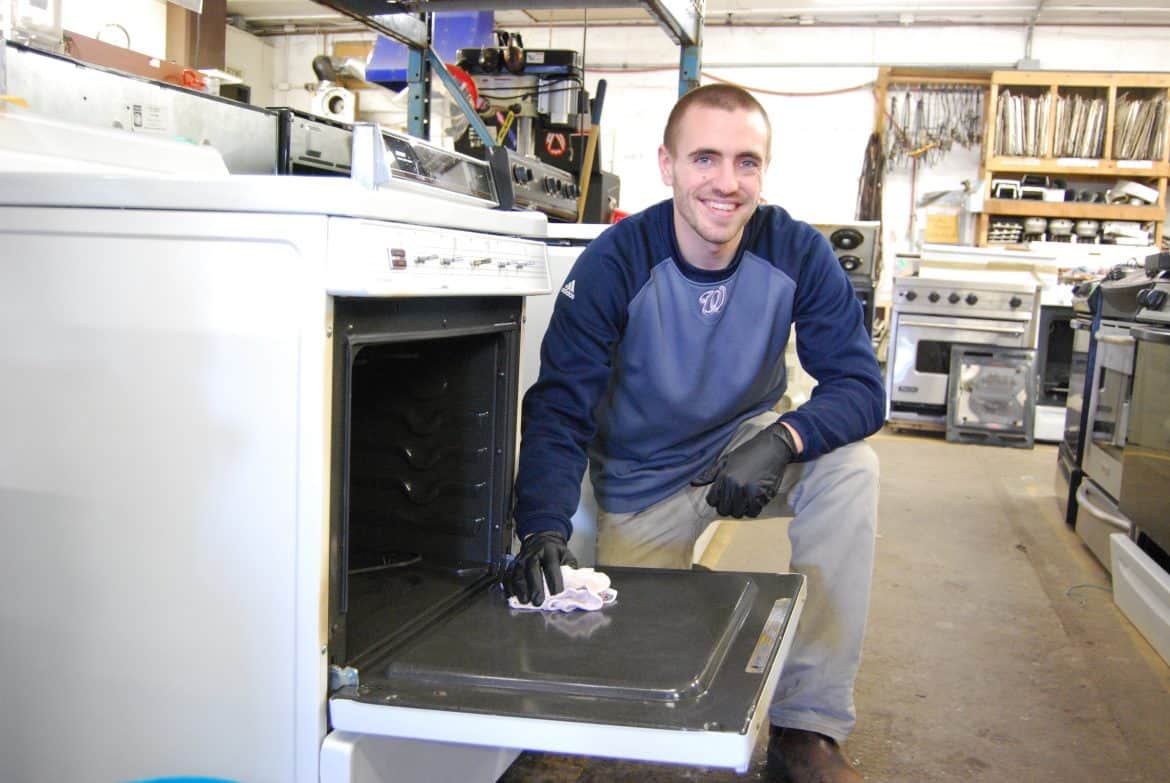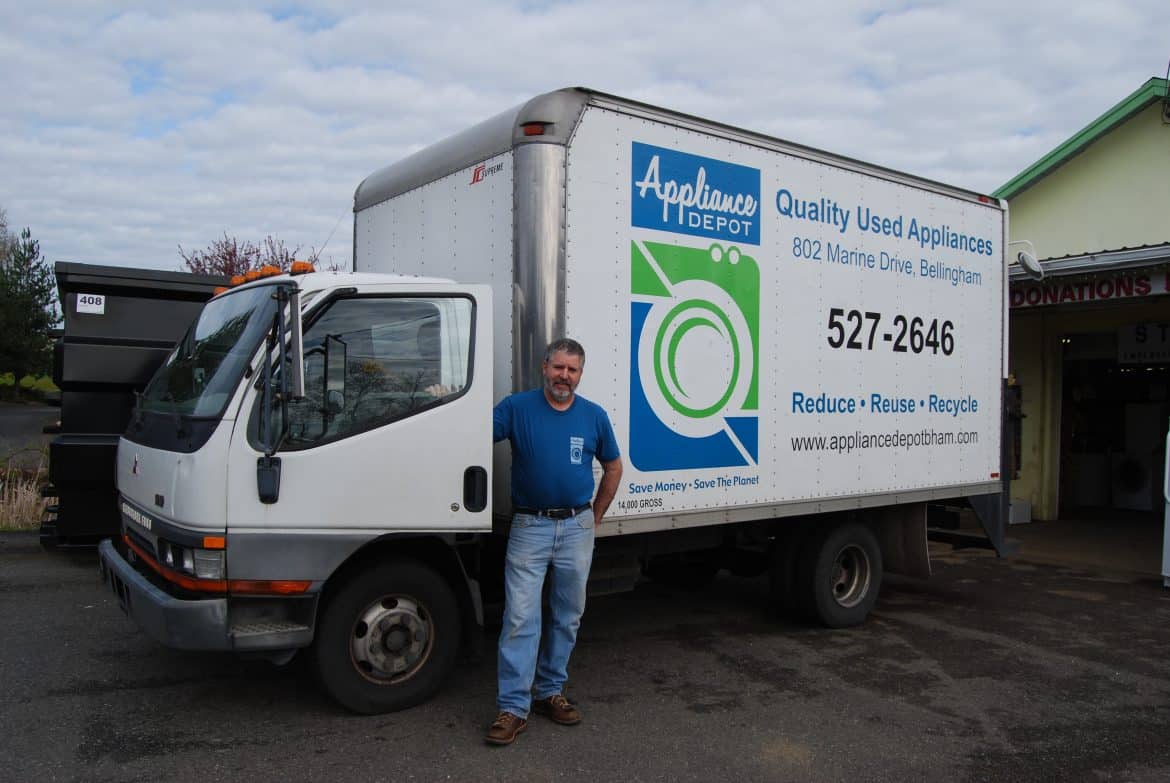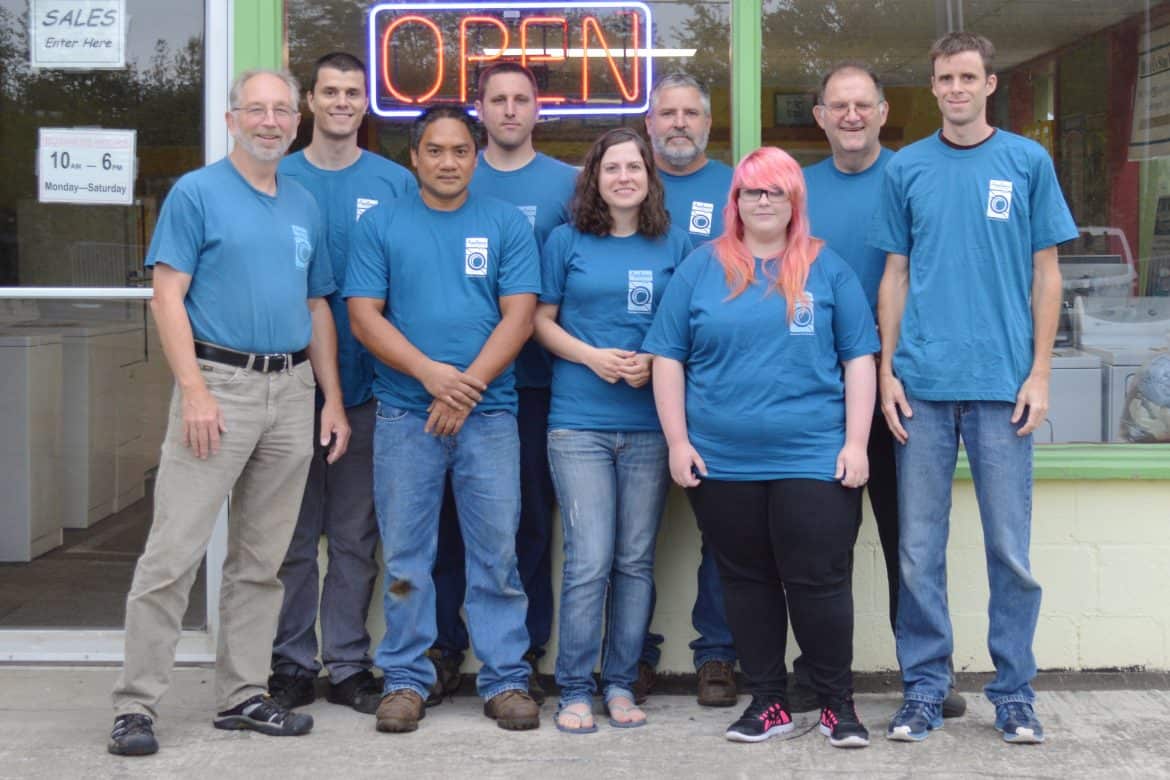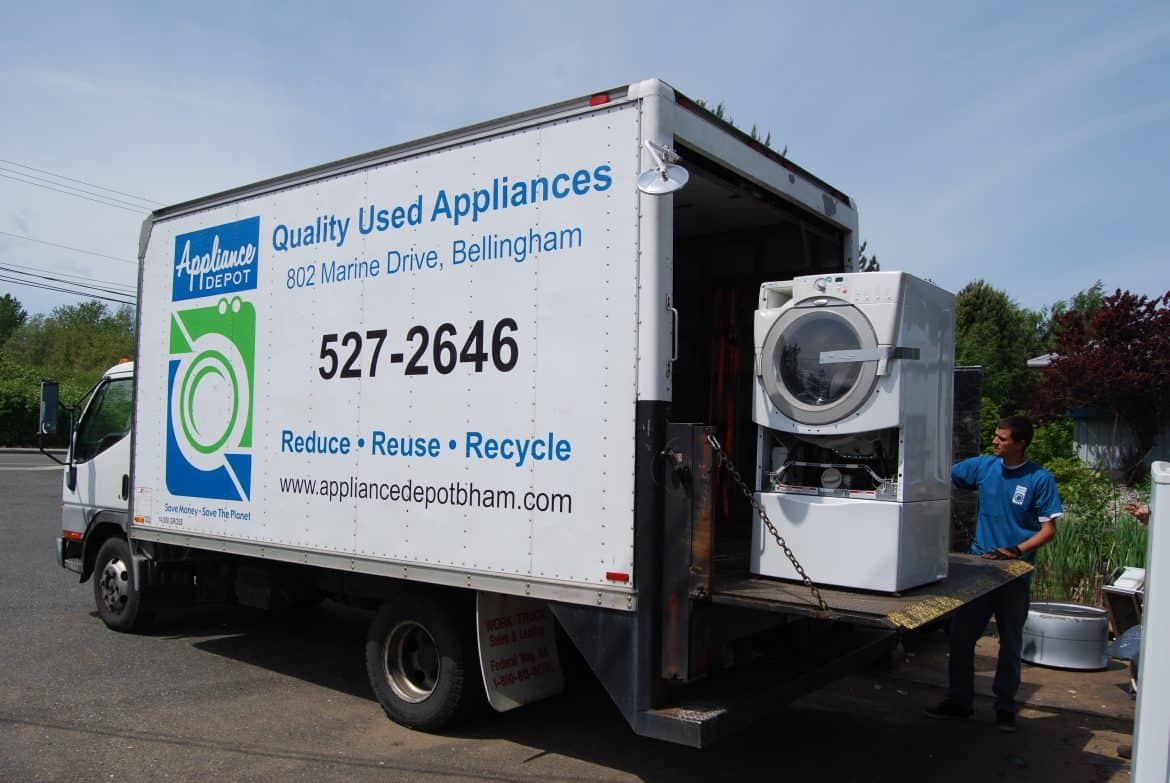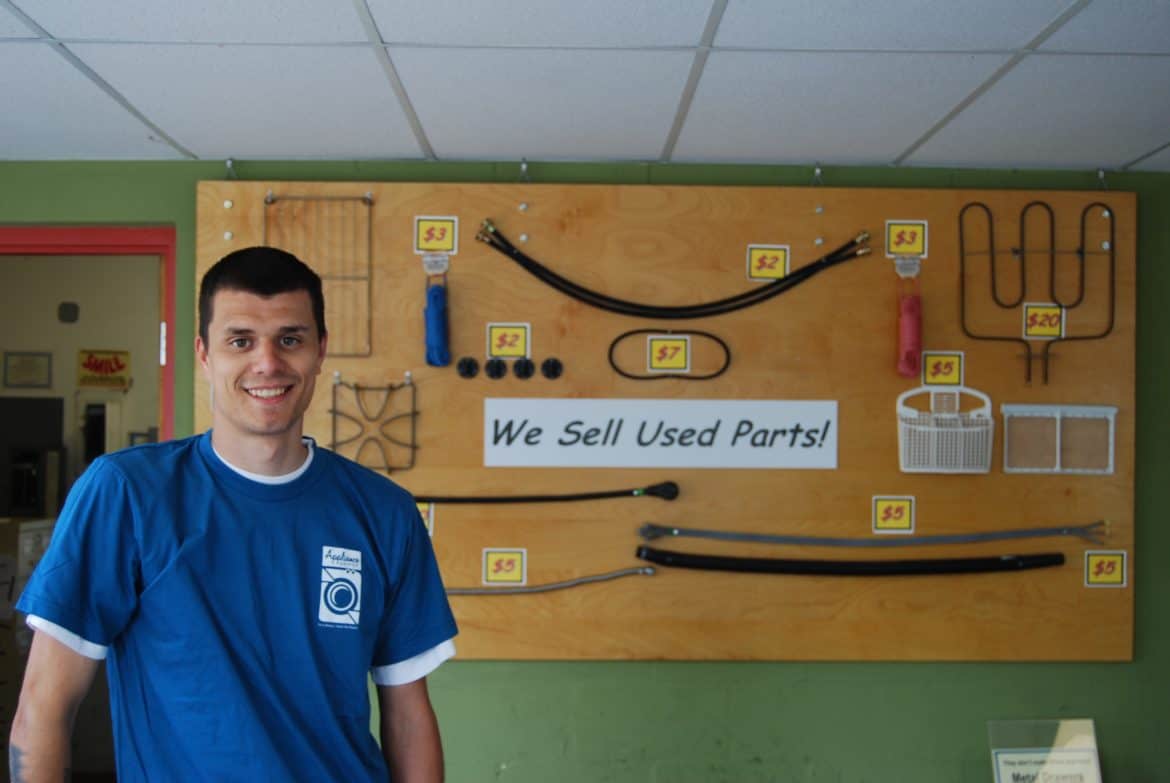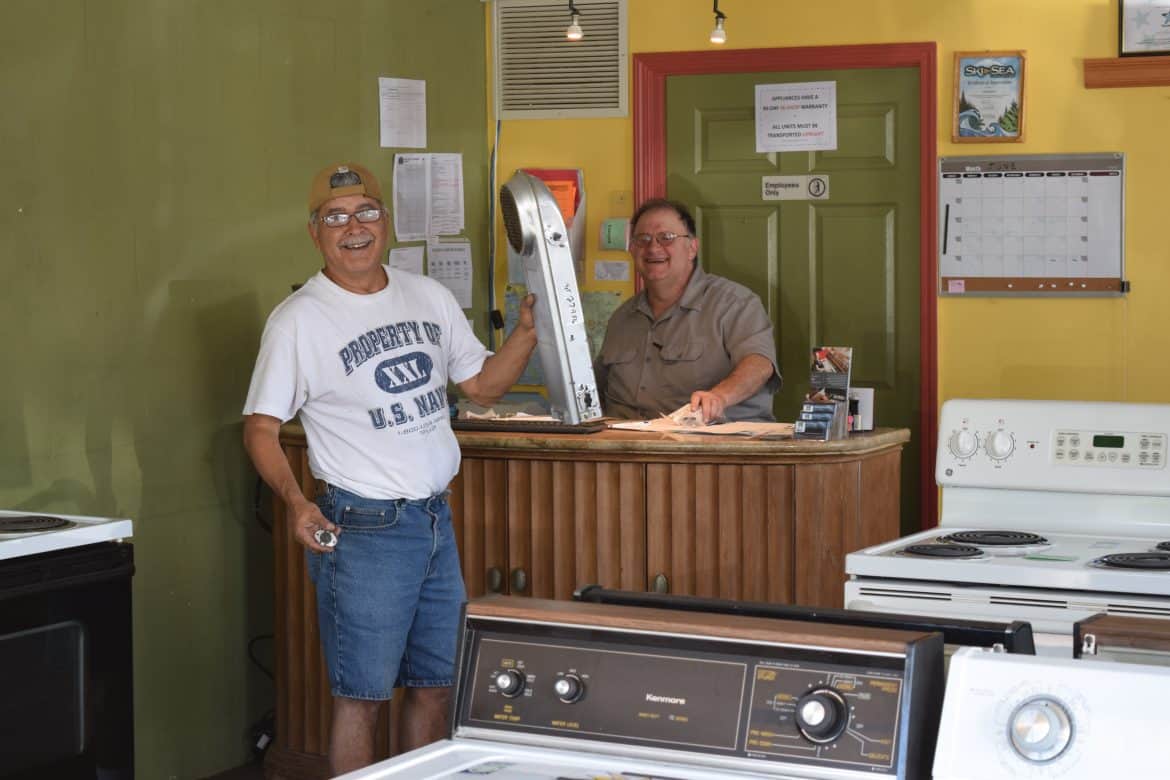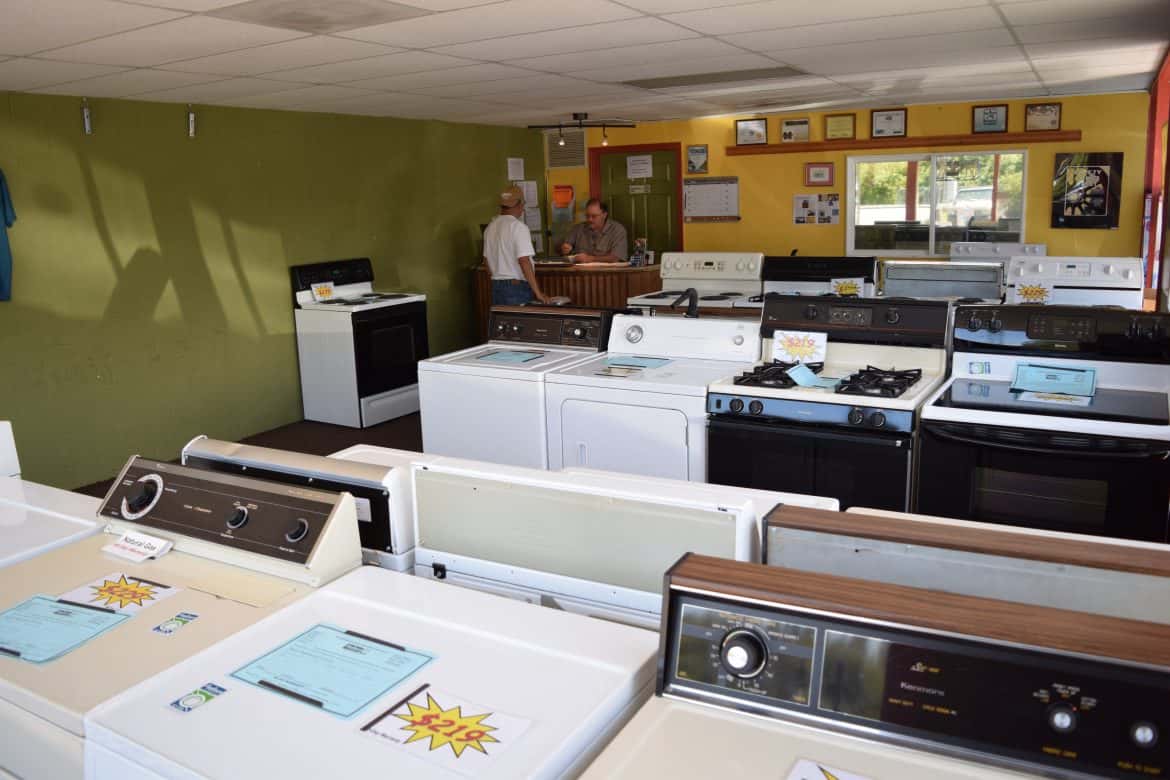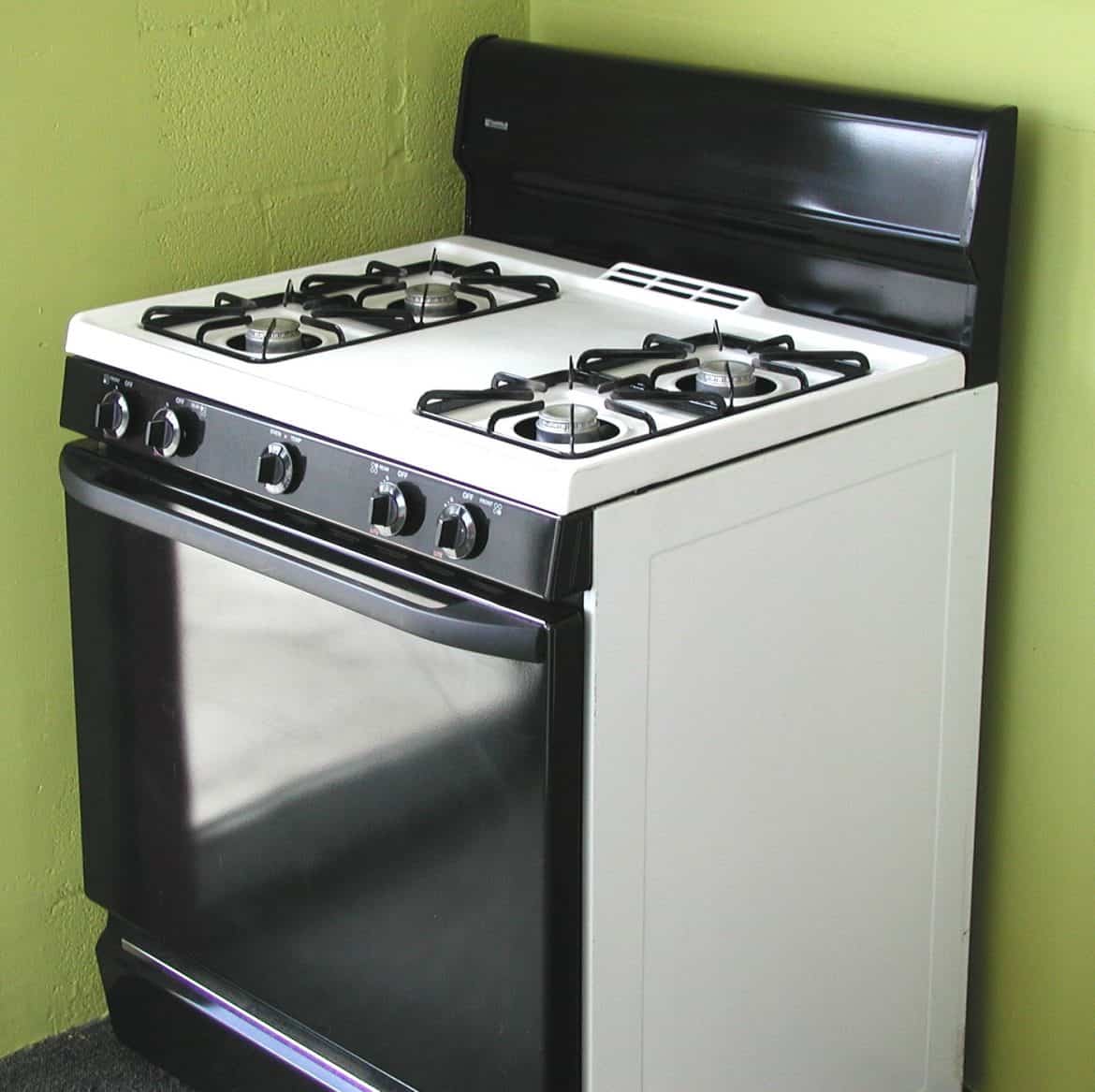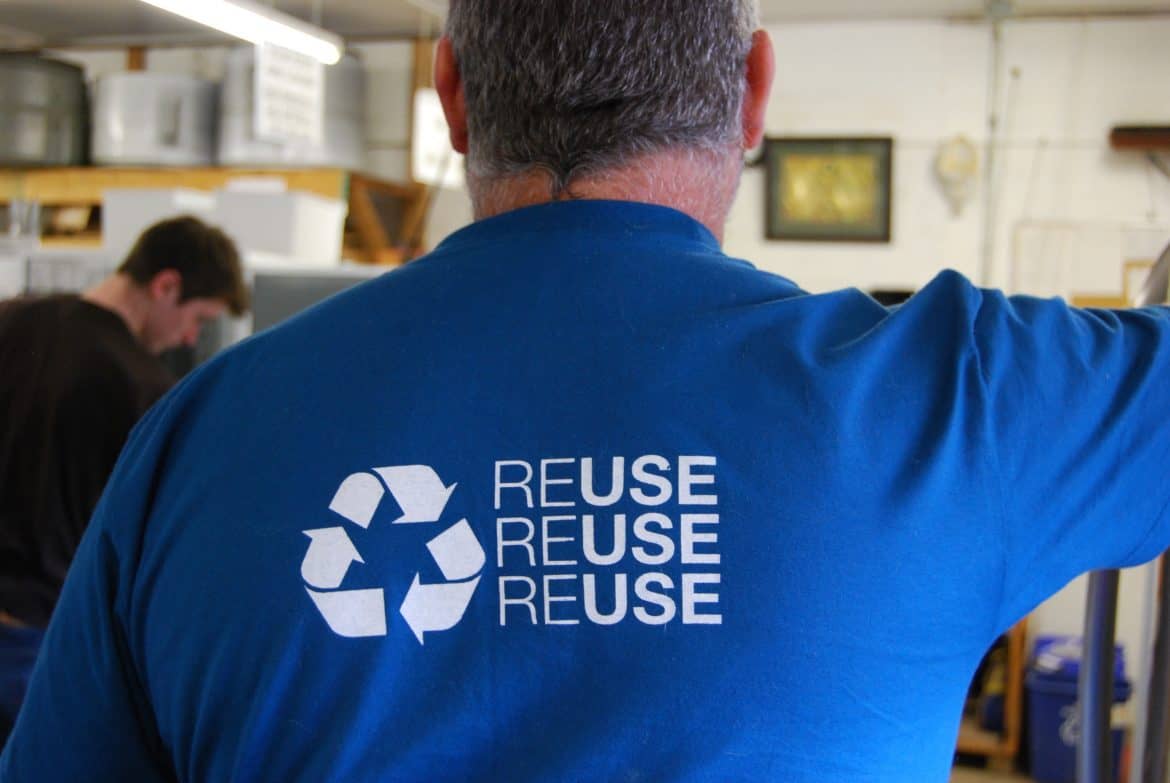From Trash To Treasure with Appliance Depot
written by Lauren Kramer
Appliance Depot reduces waste and trains employees to re-enter the workforce
Sustainability is a buzzword these days, but when Appliance Depot started in 2005 it was one of the early pioneers of the movement. The goal of the Bellingham-based nonprofit is to convert trash to treasure by refurbishing old appliances or, when that’s not possible, to strip their reusable parts and put them back to work. Refurbished appliances are resold at a fraction of the cost of new ones. The sales team, funneled from social service agencies, consists of folks who have experienced significant life challenges and need new, basic skills and experience to re-enter the workforce.
“Our program is unique in that it was created with the aim of using trainees as primary workers,” explained Dallas Betz, executive director at ReUse Works, the nonprofit that operates Appliance Depot. “Trainees work at a variety of tasks and progress quickly. Moreover, they get a sense of ownership in the business and a sense of community from their coworkers. That feeling of support and investment goes a long way toward building confidence, and we see huge transformations in our trainees’ demeanor, communication skills and self-esteem in their time with us.”
Most of the 450 trainees who have worked at Appliance Depot have arrived with little or no work history—or nothing recent. The team of seven full-time staff helps train for soft skills like customer service, and trainees usually leave with a good reference and recent work history they can take to their next jobs.
“Our trainees get a sense of ownership in the business and a sense of community from their coworkers. That feeling of support and investment goes a long way toward building confidence and we see huge transformations in our trainees’ demeanor, communication skills and self-esteem in their time with us.” – Dallas Betz
To date, Appliance Depot has kept 50,000 appliances out of the waste stream and sold 13,000 refurbished appliances, generating $3.5 million in sales. “Our planet has limited resources that are rapidly diminishing, so we need to extend the life of those goods that already exist,” Betz said. While recycling is a good idea, the first option should be re-use because that “allows us to maintain the embedded energy in each machine and keeping our money circulating locally,” he explained.
Photos by ReUse Works
Up to 25 percent of the appliances Appliance Depot receives can be reconditioned. The rest are stripped for parts and then recycled for scrap metal. Salvageable appliances are repaired in the nonprofit’s 2,000-square-foot shop and sold in the showroom at 802 Marine Drive. Surplus revenue is set aside for unforeseen, unpredictable expenses, like the new box truck that was needed after the old one’s transmission failed recently.
For most of us, when we need a new appliance we go out and buy it. We don’t think about the energy that goes into creating that machine, from resource extraction to manufacturing and transportation. “Every appliance we refurbish means that one less needs to be manufactured,” Betz said.
Betz doesn’t put much stock in the touted energy efficiencies of new appliances, either. “When you look deeper, they’re made of flimsy materials and typically last less than ten years,” he said. “When we see them here at Appliance Depot, they are rarely worth repairing. We need to shift our thinking to designing and manufacturing that is not only energy efficient in use, but has a long lifespan and can be repaired. Planned obsolescence is not a sustainable practice.”
As consumers we have to stop perceiving broken items as trash, he said, especially when it comes to appliances. “When we take people’s broken appliances and give them new life, we’re offering purchasers something that’s affordable, reliable and guaranteed by us. That appliance also enables us to provide job training services to low-income residents, so we regard it as treasure.”
Collecting old appliances is one of Appliance Depot’s challenges, but the nonprofit is grateful to have secured a partnership with Home Depot in Bellingham. “Some of their take-backs are set aside for us and we so appreciate these donations,” Betz said. “We hope that Home Depot’s model of community support opens doors to other retailers doing the same.”


